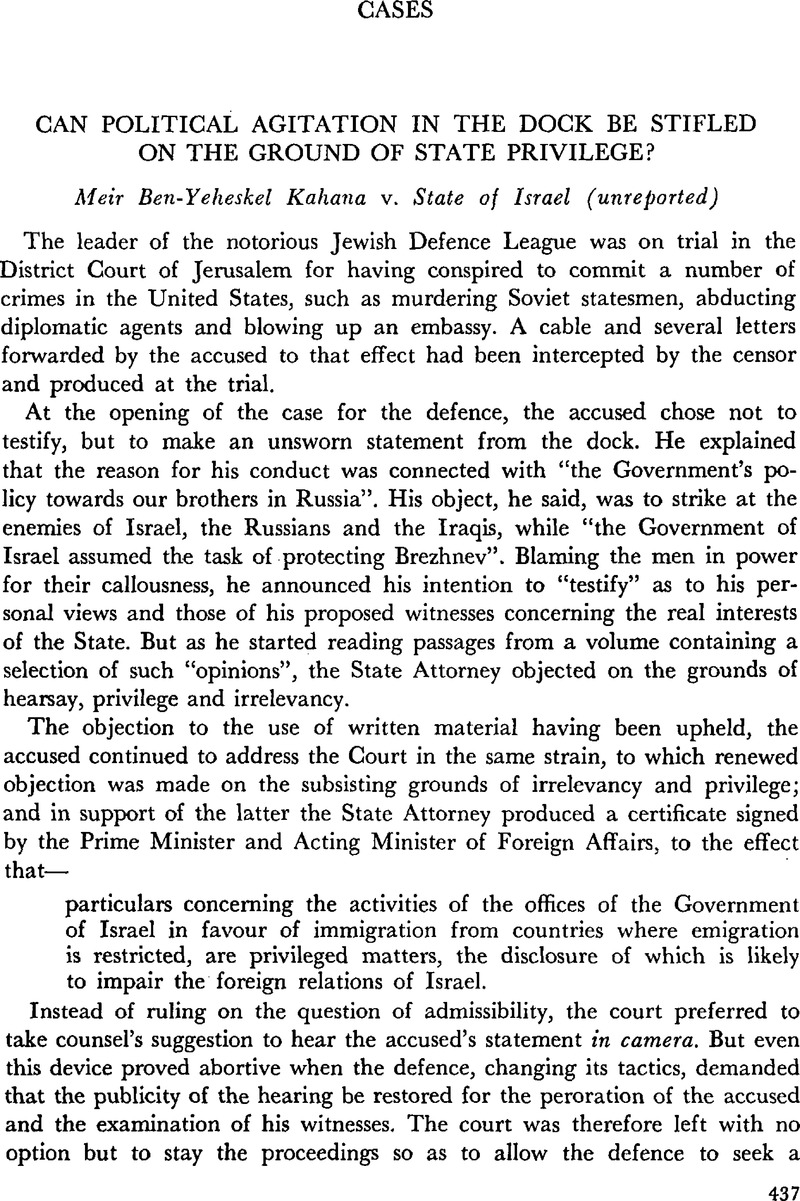Article contents
Can Political Agitation in the Dock Be Stifled on the Ground of State Privilege?
Published online by Cambridge University Press: 12 February 2016
Abstract

- Type
- Cases
- Information
- Copyright
- Copyright © Cambridge University Press and The Faculty of Law, The Hebrew University of Jerusalem 1974
References
1 An English translation of the entire enactment appears in 2 L.S.I. (N.V.) at p. 198. A series of provisions on privilege had been added to the Ordinance in 1968 (22 L.S.I. 222) and now forms Chap. III of the New Version. For an analysis of sec. 44 as originally drafted, see Harnon, E., “Evidence Excluded by State Interest” (1968) 3 Is.L.R. 387, 407Google Scholaret seq. See also Livneh, , Note: “The Law of Evidence (Amendment) Law, 1968” (1970) 5 Is.L.R. 268 at 279.CrossRefGoogle Scholar
2 The provision also applies to matters affecting the security of the State, in which case the certificate is to be issued by the Prime Minister or the Minister of Defence.
3 That is to say, the first since 1968, when the special remedy was created (cf. supra n. 1). The number of cases where State privilege was invoked, which had been quite large in the fifties, had already declined in the early sixties.
4 Such as the apology of “murder for a grievance” (R. v. Dunn and Sullivan, 17 Cr.A.R. 12 quoted in the decision).
- 2
- Cited by


